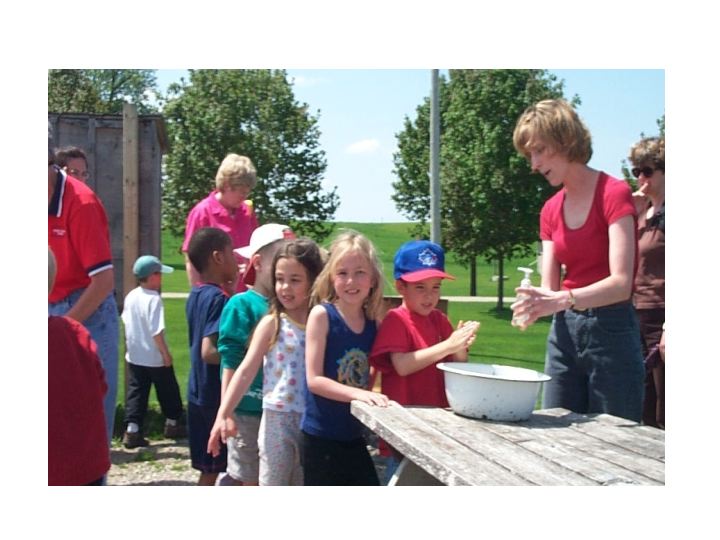About 90 children and staff at three primary schools in south Belfast are to be tested for the E. coli infection after a P1 pupil at Rosetta Primary School was confirmed as carrying the bug.
Pupils at the school recently took part in a school excursion to an open farm near Belfast along with children from Cregagh and Holy Rosary primaries.
.jpg) The Eastern Health Board said other people who had contracted the infection in recent weeks had some contact with the farm.
The Eastern Health Board said other people who had contracted the infection in recent weeks had some contact with the farm.
Children and pensioners are especially vulnerable to E. coli O157 which is normally found in the intestines of people and cattle and can be passed on by eating infected food and liquid.
Not quite.
E. coli O157 and other verotoxigenic E. coli are found in about 10 per cent of all ruminants — cattle, sheep, goats, deer — and outbreaks have been linked to each.
So while the farm says,
"We are confident that our intensive cleaning programme over the weekend will further reassure the Health and Safety Executive (HSE) on Monday and that we will immediately reopen for business,"
it may not be that simple.
There have been over 20 outbreaks of severe illness from petting zoos — primarily contact with farm animals — in the past decade.
159 people, mainly children, were sickened with E. coli O157:H7 traced to a goat and a sheep at the petting zoo at the 1999 Western Fair in London, Ontario.
Prof. Hugh Pennington of the U.K. has gone so far as to say that children under five (who are more vulnerable because of their still-developing immune systems) should be banned from visiting livestock farms because of the serious risk of acquiring E. coli O157:H7 infection from farm animals. Such a ban already exists in Sweden.
 In the fall of 1998, I accompanied one of my four daughters on a kindergarten trip to the farm (left). After petting the animals and touring the crops –I questioned the fresh manure on the strawberries –we were assured that all the food produced was natural. We then returned for unpasteurized apple cider. The host served the cider in a coffee urn, heated, so my concern about it being unpasteurized was abated. I asked: "Did you serve the cider heated because you heard about other outbreaks and were concerned about liability?" She responded, "No. The stuff starts to smell when it’s a few weeks old and heating removes the smell."
In the fall of 1998, I accompanied one of my four daughters on a kindergarten trip to the farm (left). After petting the animals and touring the crops –I questioned the fresh manure on the strawberries –we were assured that all the food produced was natural. We then returned for unpasteurized apple cider. The host served the cider in a coffee urn, heated, so my concern about it being unpasteurized was abated. I asked: "Did you serve the cider heated because you heard about other outbreaks and were concerned about liability?" She responded, "No. The stuff starts to smell when it’s a few weeks old and heating removes the smell."
There is much to learn from interacting with animals, farms and the world. The challenge is to do so in a microbiologically safe manner.
